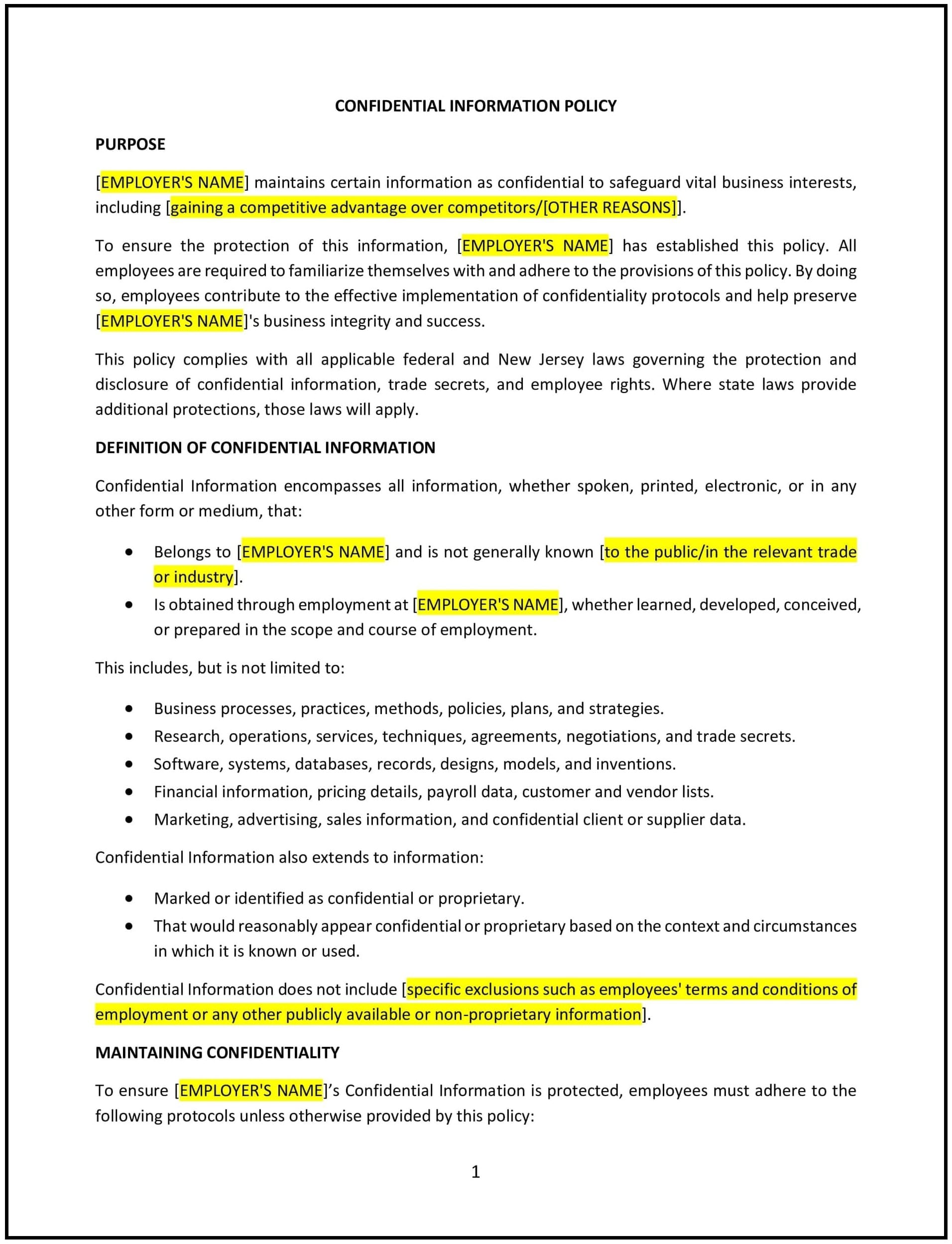Confidential information (New Jersey) policy: Free template
Got contracts to review? While you're here for policies, let Cobrief make contract review effortless—start your free review now.

Customize this template for free
Confidential information (New Jersey)
A confidential information policy helps New Jersey businesses protect sensitive business data, trade secrets, and proprietary information. This policy outlines the types of information considered confidential, employee responsibilities for safeguarding data, and the consequences of unauthorized disclosure. It also sets expectations for handling confidential information in various work settings, including remote work and third-party interactions.
By adopting this policy, businesses in New Jersey can reduce the risk of data breaches, unauthorized disclosures, and reputational harm while promoting a culture of confidentiality.
How to use this confidential information policy (New Jersey)
- Define confidential information: Specify the types of information covered by the policy, including customer data, financial records, trade secrets, employee information, and proprietary business strategies.
- Set employee responsibilities: Require employees to handle confidential information with care, store it securely, and limit access to authorized personnel.
- Outline security measures: Provide guidelines for securing confidential data, including encryption, password protection, and access controls.
- Address third-party disclosures: Prohibit employees from sharing confidential information with external parties unless authorized and protected by a non-disclosure agreement (NDA).
- Establish guidelines for remote work: Require employees working remotely to follow security protocols, such as using company-approved devices and secure networks.
- Detail consequences for breaches: Explain that unauthorized disclosure or misuse of confidential information may result in disciplinary action, up to and including termination.
- Provide reporting procedures: Encourage employees to report suspected breaches or unauthorized access to confidential information immediately.
- Review and update: Regularly assess the policy to align with changes in technology, business needs, and New Jersey data protection laws.
Benefits of using this confidential information policy (New Jersey)
This policy provides several benefits for New Jersey businesses:
- Protects sensitive business information: Reduces the risk of trade secret leaks and unauthorized disclosures.
- Safeguards customer and employee data: Ensures that personal and financial information is handled responsibly.
- Strengthens legal protections: Provides a clear framework for enforcing confidentiality agreements and policies.
- Enhances business reputation: Demonstrates a commitment to data security and ethical business practices.
- Reduces operational risks: Helps prevent financial and reputational harm resulting from data breaches.
Tips for using this confidential information policy (New Jersey)
- Communicate the policy clearly: Ensure employees understand what information is considered confidential and how it should be protected.
- Train employees on data security: Provide regular training on best practices for handling confidential information, including phishing awareness and cybersecurity risks.
- Limit access to sensitive data: Restrict confidential information to employees who need it for their roles.
- Require NDAs when necessary: Use non-disclosure agreements for employees, contractors, and third parties handling sensitive business information.
- Monitor and update security measures: Regularly review security protocols to address emerging threats and evolving business needs.